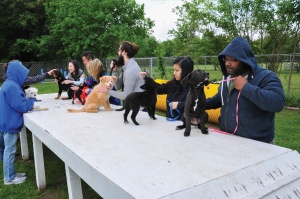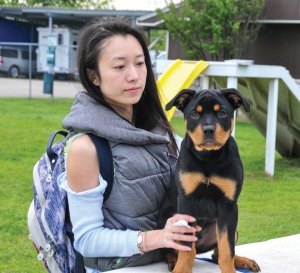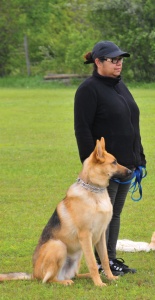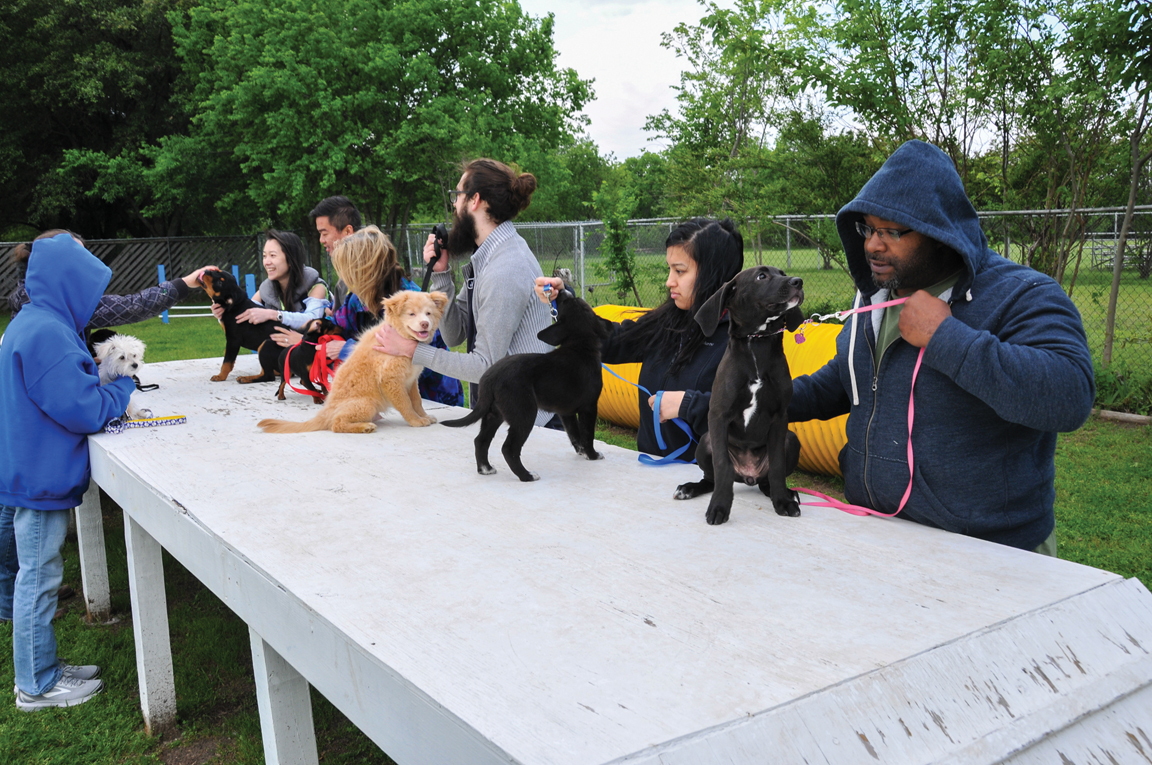
The majority of dogs and cats that are “put to sleep” at government-operated animal control dog pounds and humane organizations (millions every year) got there because of a behavioral problem.
Dogs were biting, barking, digging, chewing, pottying in the house or committing some other offense. Cats were scratching furniture or not using the litter box. Most of these problems, if not all, can be corrected with proper obedience training and behavior modification.
There are numerous pet stores, veterinary clinics and individuals who offer some form of training. The problem we have discovered is that many of these supposed training programs are based on theories that don’t work and taught by people who took some online training course but who have never trained any dogs.
So, in the pet owner’s mind, training doesn’t work, or it is too expensive, or “I don’t want to leave my dog,” or “they don’t know anything about cats, etc.” We get calls at the Humane Society every week from people who have tried these programs and failed. Unfortunately, many of these owners have given up on training due to a bad experience, and they now want to get rid of the pet. This is how pets end up being KILLED at the dog pound.

Training classes at the Arlington Humane Society (since 1984) are taught by Professional Dog/Animal Trainers who have trained thousands of dogs and cats and know how to solve behavior problems when a “cookie” doesn’t work. Over the years we have saved thousands of dogs and cats from certain death at the dog pound.
There are seven critical periods of psychological and sociological development that occur in all dogs. All seven of these occur prior to the puppy reaching four months old. You make or break a dog in the first four months of his life.
Puppies should be separated from their litter mates at seven weeks of age and should immediately start puppy school as soon as they receive their first set of puppy vaccinations, which should be given at this time. Puppies develop immunity within a week of receiving their first vaccinations. This is why we give a series of puppy vaccinations that continue to develop immunity as the puppy grows. It is not necessary, nor is it advisable, to wait to start training until all the puppy vaccinations have been given. By this time you have missed the most important time for training, and you cannot go back and correct mistakes that were made.
PUPPY KINDERGARTEN CLASS is for puppies 7-16 weeks of age and meets weekly on Saturdays. New puppies start every week. Up until four months of age we are molding behavior; after four months we are changing established behavioral patterns. It is much easier to mold behavior than to go back and try to change established behavioral patterns. Don’t miss this all-important period of adolescent development.
In puppy class we teach house breaking, stopping chewing, master-dog relationship, beginning obedience, as well as socialization with other puppies and humans. Puppies learn how to learn. Problems such as “separation anxiety” and extreme shyness can be caused by lack of training and socialization during this first four-month period of life.
BEGINNING OBEDIENCE TRAINING should start somewhere between 6 and 10 months of age. This is assuming that we have gone through puppy school. In beginning obedience we start to introduce some real discipline and control. At this level all training is on leash. Commands covered include heel, sit, lie down and stay. Control is archived in all situations – i.e., around other dogs and cats, people, vehicles as well as different environments.
New classes start twice each month and are on a first-come, first-serve basis. Beginning class goes for six weeks and can be repeated, if necessary.
ADVANCED OBEDIENCE TRAINING is taught totally off leash and is ongoing. Owners and their dogs who successfully complete beginning obedience can enroll in the advanced program. This program covers “come” when called as well as all other off-leash behavior.

Each week after field training dogs are put in the Kennel, and owners go to a classroom where they are taught all aspects of pet care and owner responsibility. This includes behavior psychology, veterinary medicine, flea and tick control, grooming, nutrition and first aid. This program is very academically oriented and is taught at a college level.
All classes are taught using donated space at Country Acres Kennels, where we have 20 acres of training grounds, including fenced training yards, agility courses, swimming pools, classrooms, an AKC Obedience Ring and a 5-acre Dog Park.
Owners wishing to participate in any of the classes must pre-register. Bring your dog and vaccination records out to Country Acres Kennels during normal office hours, and they will register you for the correct Humane Society class. All dogs must be current on age-appropriate vaccinations, be spayed/neutered if old enough, be on monthly heartworm prevention and be healthy. Owners must be in good physical condition, as dog training is somewhat strenuous.
Country Acres Kennels donates their facilities and professional trainers to help the Humane Society. The Kennel, the staff or the Kennel owners receive no money or other remuneration from the Society. The Society can only do what it has the funds to do. We ask that everyone make a donation; however, no one has ever been told they couldn’t go to class because they were broke.
Let’s fix the problem, so the pet doesn’t have to be KILLED.















